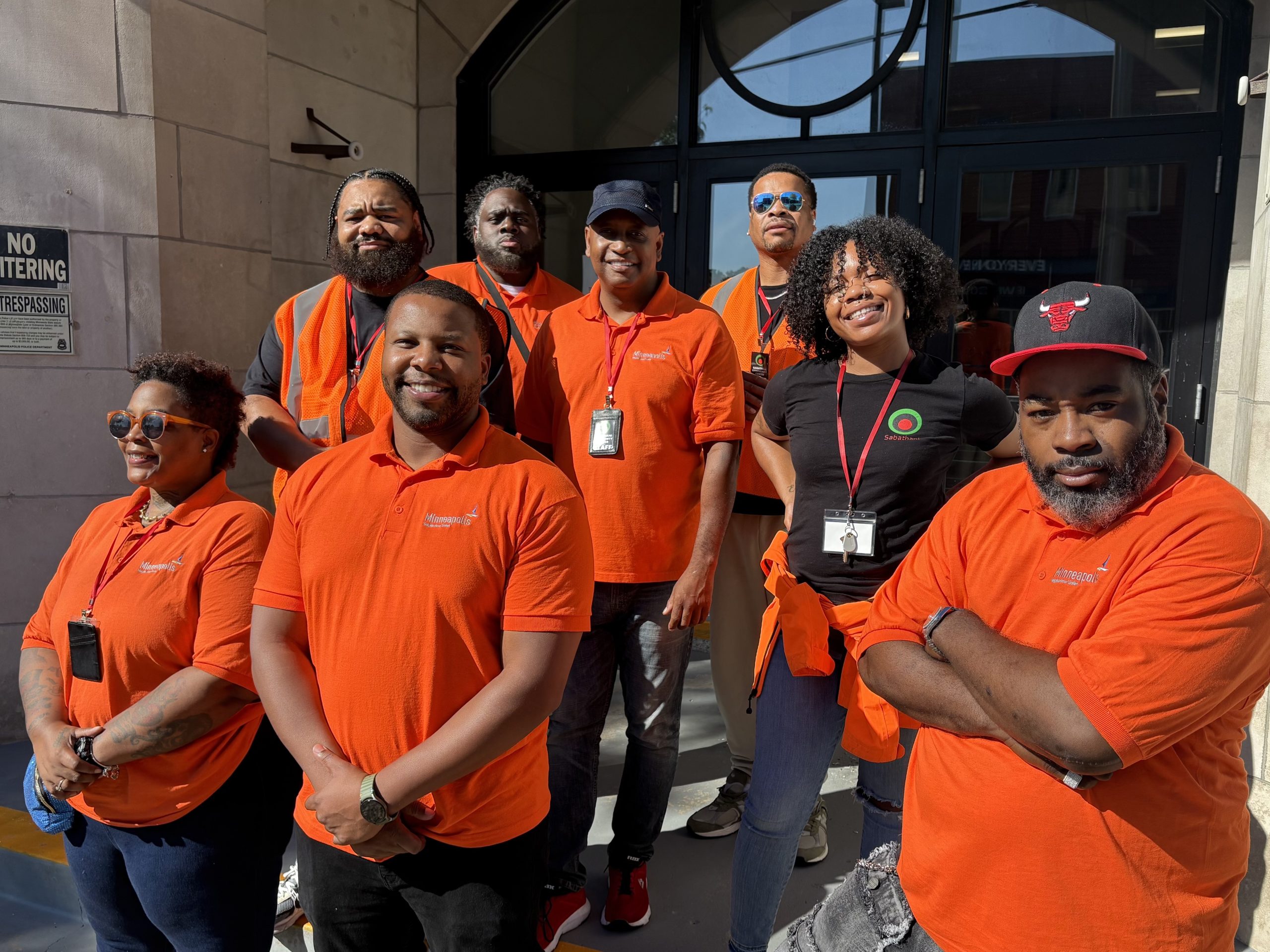Interrupting Violence, Building Community: A Conversation with Nigel Sharper

At Sabathani Community Center, our new Violence Interrupters program is taking bold steps to “undo the norm of violence” in South Minneapolis. We sat down with program director Nigel Sharper to learn more about the team’s work, why it matters, and how neighbors can get involved.
A New Approach to Public Safety
Nigel explains the mission in clear terms:
“We work with the community to change violent activities. The goal is to normalize not committing violent acts.”
The program, developed in partnership with the City of Minneapolis, focuses on a target area stretching from 38th Street to 31st Street, and 2nd Avenue to 10th Avenue. But the impact extends beyond these boundaries.
Sabathani’s team includes six Violence Interrupters, two outreach workers, a site supervisor, and Nigel as director. Violence Interrupters are out in the community every day, building relationships and identifying individuals at risk of violence. When needed, they connect people to outreach workers, who provide case management and critical resources like housing, food, employment, and identification documents.
The program draws inspiration and resources from Cure Violence Global, an initiative that has trained interrupters in cities around the world. Nigel emphasizes the importance of lived experience:
“The community has always needed this work, but even more so after George Floyd was murdered. We have connections and trust that law enforcement often can’t bring, because we live here. We’re neighbors first.”
Preventing Violence Before It Happens
How do you stop violence before it begins? Nigel says visibility and connection are key.
The interrupters spend about seven hours a day on the streets, canvassing neighborhoods, walking different routes, talking with residents and business owners, and connecting with those at risk. They also monitor online spaces where conflicts can flare.
It’s not just about gang conflicts – domestic violence and other interpersonal crises are also part of their work. “If we’re out there de-escalating, likely nothing is going to happen,” Nigel says. “Just knowing that it’s a safer community, that’s the most rewarding part.”
A Day in the Life
The work is challenging, but Nigel says it’s not as dangerous as people assume:
“Day to day it’s not very dangerous, but we are put in areas where it can be. That’s why we’re always in groups of six to eight. The more of us, the safer it is.”
Building Community Through Events
The team isn’t only working the streets – they’re also creating spaces for dialogue and healing.
Sabathani recently hosted a community movie night featuring Boyz n the Hood, followed by a community conversation. Nigel sees it as a chance to imagine a different story:
“If there were violence interrupters in that movie, it would’ve been a much different story.”
The event was also a way for the community to meet the Violence Interrupters team in person. “We want people to know what we do. It’s not about getting cats out of trees,” Nigel laughs.
Events like this are designed to spark conversations, bring neighbors together, and create opportunities for mentorship and deeper relationships.
On the Ground: Violence Interrupters in Action
During August and September, the Sabathani Violence Interrupters have been actively engaged in the community, responding to recent incidents of gun violence around Lake Street. At each scene, the team worked to prevent potential retaliation by supporting both victims and witnesses in meaningful ways. This support has included referrals to employment opportunities, food assistance, housing resources, mental health services, and even providing a bicycle to ensure reliable transportation for someone in need.
Beyond crisis response, the Violence Interrupters continue to build trust through mentorship and relationship-building, fostering a stronger and safer community. Their efforts not only address immediate harm but also connect individuals to long-term resources that promote healing, stability, and resilience.
Partnerships & Support
Nigel says local businesses have embraced the program, appreciating the open communication and willingness to walk with them. “If they see something or hear something, they let us know. And in turn, we can point them toward resources or support.”
For community members, getting involved can be as simple as showing up, joining conversations, or connecting youth and families with Sabathani’s programs.
Measuring Success
The team uses risk assessments to track participants who may be involved in violence. Success is measured not only by reduced numbers but also by what doesn’t happen:
“As long as nothing else happens – no retaliation – that’s success.”
Looking Ahead
Nigel wants the community to know the program is built on proper training and backed by support for staff wellness, including mental health resources. “We’re equipped to do what we’re supposed to do,” he says.
And with continued community partnerships, that work can keep growing.
Read more about Sabathani’s Violence Interrupters in the Star Tribune’s recent coverage.
